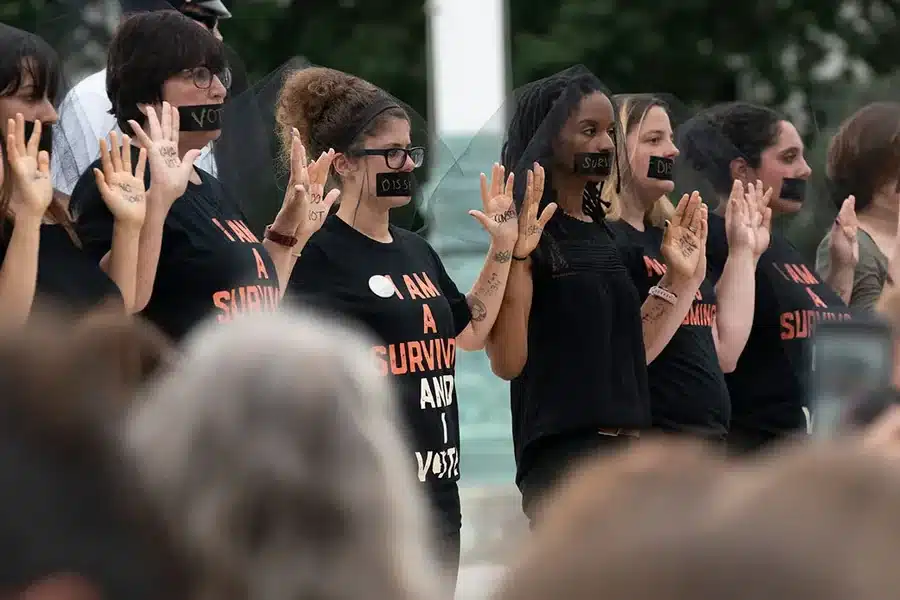In navigating the complexities of reporting sexual assault, you may encounter a landscape deeply influenced by cultural factors, particularly within marginalized communities. These factors can create formidable barriers that deter survivors from coming forward, thereby perpetuating cycles of silence and injustice. Whether looking for a sexual assault lawyer in arkansas, in this article, you will delve into the myriad challenges marginalized groups face, uncovering the systemic inequities.
Understanding Cultural Factors in Reporting Sexual Assault
The Role of Cultural Norms
In different communities, sexual assault is viewed differently because of prevailing cultural standards. In specific cultures, talking about sexual violence is looked down upon which can stop victims from speaking up. Many people feel pressed by this because they are afraid of being blamed or shunned for what has happened to them.
Empathy and understanding are critical when addressing these deeply ingrained beliefs. By fostering inclusive dialogues, communities can gradually change perceptions, supporting victims in seeking justice without fear of retribution.
Impact of Language and Communication
People may have difficulty reporting if there is a language barrier. Because of limited access to interpretation, many marginalized people struggle to access resources. Talking to victims in their native language and with respect to their culture makes them feel understood. Using this way of questioning can encourage more people to report assaults with full confidence.
Barriers Faced by Marginalized Communities
Cultural Stigma
Several social stigmas prevent marginalized individuals from sharing when someone has violated them. Survivors might be seen as dishonorable by society due to old beliefs which can bring about feelings of shame. Because people often fear being excluded or criticized, bullied silence plays a major role.
Language and Communication Challenges
Language barriers present another formidable obstacle. Limited access to translation services can hinder survivors’ ability to effectively communicate their experiences. Misinterpretations or misinformation may arise, hindering accurate reporting and support.
Lack of Trust in Authorities
Historically, marginalized groups have experienced disproportionate discrimination, fostering a mistrust of law enforcement and judicial systems. Doubt in receiving fair treatment often deters survivors from coming forward, as they fear revictimization or inadequate responses from authorities. Such barriers necessitate targeted solutions to address these systemic issues.
Exploring Solutions: Overcoming Reporting Obstacles
Community Empowerment
Empowering communities is pivotal in dismantling barriers to reporting sexual assault. Education and awareness initiatives can foster an environment where survivors feel supported and understood. Workshops and seminars should focus on the rights of survivors, the reporting process, and available resources. Community leaders can serve as advocates, championing the cause and providing a relatable figure for individuals to approach.
Cultural Competence in Support Services
To address cultural sensitivities, support services must adopt culturally competent practices. This involves training staff to understand the diverse cultural backgrounds and specific challenges of marginalized communities. Integrating multilingual services ensures accessibility for non-native speakers, breaking down language barriers that often impede reporting.
Legal Framework Enhancement
Strengthening the legal framework is essential to encourage reporting. By implementing protective measures and ensuring the confidentiality of survivors, the legal system can create a more secure environment for individuals to come forward. This includes dedicating resources to streamline reporting processes, making them more transparent and less daunting for survivors.
The Role of Community Support in Addressing Sexual Assault
Importance of Community Trust
Community support is foundational in creating a safe environment for survivors to come forward and seek help. Trust fosters a sense of security, enabling individuals to share their experiences without fear of judgment or retaliation. Building this trust requires active engagement from community leaders, who must be committed to understanding and addressing the unique cultural and social dynamics of their community.
Empowerment Through Collective Action
When a community unites against sexual assault, it empowers survivors and potential victims alike. Collective efforts, such as creating support networks and advocacy groups, can amplify voices that might otherwise be silenced. These initiatives can provide educational resources, facilitate open dialogue, and promote awareness, which is critical in dismantling stigmas and fostering a culture of support and healing.
Policy Recommendations for Enhanced Reporting Mechanisms
Improve Accessibility
Enhancing accessibility is crucial in reporting sexual assault within marginalized communities. Policies must ensure that reporting systems are easily accessible and culturally sensitive. This includes offering multilingual support and employing culturally competent staff trained to understand diverse backgrounds and experiences. Providing these resources can create an environment where survivors feel respected and understood.
Strengthen Community Engagement
Building trust through community engagement is essential. Establishing partnerships with local organizations that the community trusts can facilitate better communication and support. These regional entities can serve as bridges between law enforcement and survivors, ensuring a more supportive and effective reporting process.
Implement Trauma-Informed Training
It is vital to incorporate trauma-informed training for law enforcement and healthcare professionals. This training equips them to respond sensitively and appropriately, reducing re-traumatization and encouraging more survivors to come forward. It also ensures that every step of the reporting process considers the survivor’s mental and emotional well-being.
Final Thoughts
Addressing the complex interplay of cultural factors in reporting sexual assault, you are invited to consider the profound impact these barriers have on marginalized communities. Whether looking for a sexual assault lawyer in Arkansas, by recognizing and actively working to dismantle these systemic obstacles, you foster an environment where all survivors feel empowered to seek justice and support.




